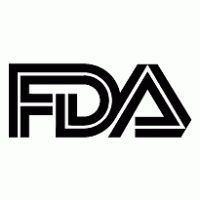Follow-Up Trials for Accelerated Approval Drugs Often Miss FDA Deadline
Data suggest confirmatory trials conducted for drugs granted accelerated approval by the FDA have taken a median 3.5 years to complete since 2012.

Confirmatory follow-up trials designed to further evidence drugs approved by the US Food and Drug Administration (FDA) through its accelerated pathways are generally completed after the deadline set by the FDA, according to new data.1
In a research letter assessing the timing of confirmatory studies for drugs reaching the US market via the FDA’s accelerated approval standards, investigators observed that the median time to complete such a trial was approximately 3.5 years after the drug was already approved. The findings elucidate a potential issue in assured clinical benefit and treatment outcome transparency associated with accelerated-approved drugs—especially in patient populations with fewer treatment options and pressing needs for care who may be quick to be prescribed such drugs.
Investigators, led by Anjali D. Deshmukh, MD, JD, of the Program on Regulation, Therapeutics, and Law (PORTAL) in the division of pharmacoepidemiology and pharmacoeconomics at Brigham and Women’s Hospital, conducted a cross-sectional analysis to characterize the frequency of delated confirmatory trials compared to the FDA’s deadlines for such trials under its accelerated approval program.
They noted that the program expedites regulatory approvals for medications indicated for patient populations with at-need, serious diseases on the basis of efficacy evidence from “surrogate markers that are reasonably likely to predict clinical benefits.”
“As required by law, drug manufacturers agree to evaluate clinical benefits in a follow-up trial,” investigators wrote. “The FDA sets a time frame for completion, but confirmatory trials are sometimes delayed.”
Deshmukh and colleagues used publicly available FDA data to identify the follow-up trial requirements and agreed-upon deadlines between the agency and manufacturers of drugs that received accelerated approval between January 2012 – July 2021. Instances when the requirement was fulfilled after the deadline or if the indication was withdrawn by the manufacturer after the deadline as of September 2021 indicated a late trial fulfillment.
Their assessment included 177 follow-up trial requirements for 140 new indications through the accelerated approval pathway during that time. Investigators observed a median 3.5 years to completion of confirmatory trials from the date of FDA approval (interquartile range [IQR] 1.8 – 5.8 years).
The team observed little variability in the FDA’s time granted for trial completion over the study period, and similar duration for trials assessing biologics (median 3.3 years) and small molecule drugs (3.8 years).
Of the 100 trials completed or due before September 2021, 54 (54%) were late. Another 14 (8%) were reported to the FDA as delayed by the manufacturer before their due dates. Among the 54 late trials, 27 were fulfilled by that September at a median 1.0 year (IQR, 0.7 – 1.9) after their deadline. As of September 2021, 24 incomplete late requirements that had not been withdrawn by the drug manufacturer were a median 1.8 years (IQR, 0.6 – 2.2) past their deadline.
Confirmatory trials for drugs with non-cancer indications (n = 15 [93%]) were more likely to be late than those for drugs with oncologic indications (n = 39 [46%]); small molecule drug trials (n = 40 [62%]) were additionally more likely to be late than biologic trials (n = 14 [40%]).
Though the assessment was limited by shorter follow-up for more recently accelerated-approved drugs and the inability to identify reasons for trial delays, investigators concluded that a majority of confirmatory studies under this FDA program were not completed by their agreed-upon time.
“Incomplete confirmatory clinical trials harm patients who are prescribed expensive drugs despite uncertain clinical benefits,” the team wrote. “However, drug manufacturers face few consequences for delays.”
That may not be a future issue, as they noted the 2023 Consolidated Appropriations Act has provided reforms including more FDA authority to ensure confirmatory trials are underway prior to accelerated approval, mandated 6-month progress reports from manufacturers and clarifying procedures for confirmatory trial withdrawal.
“It will be important to monitor whether these changes lead to fewer delays or whether additional authority is needed to assure that confirmatory trials are completed in a timely manner for the benefit of patients,” investigators wrote.
References
- Deshmukh AD, Kesselheim AS, Rome BN. Timing of Confirmatory Trials for Drugs Granted Accelerated Approval Based on Surrogate Measures From 2012 to 2021. JAMA Health Forum. 2023;4(3):e230217. doi:10.1001/jamahealthforum.2023.0217